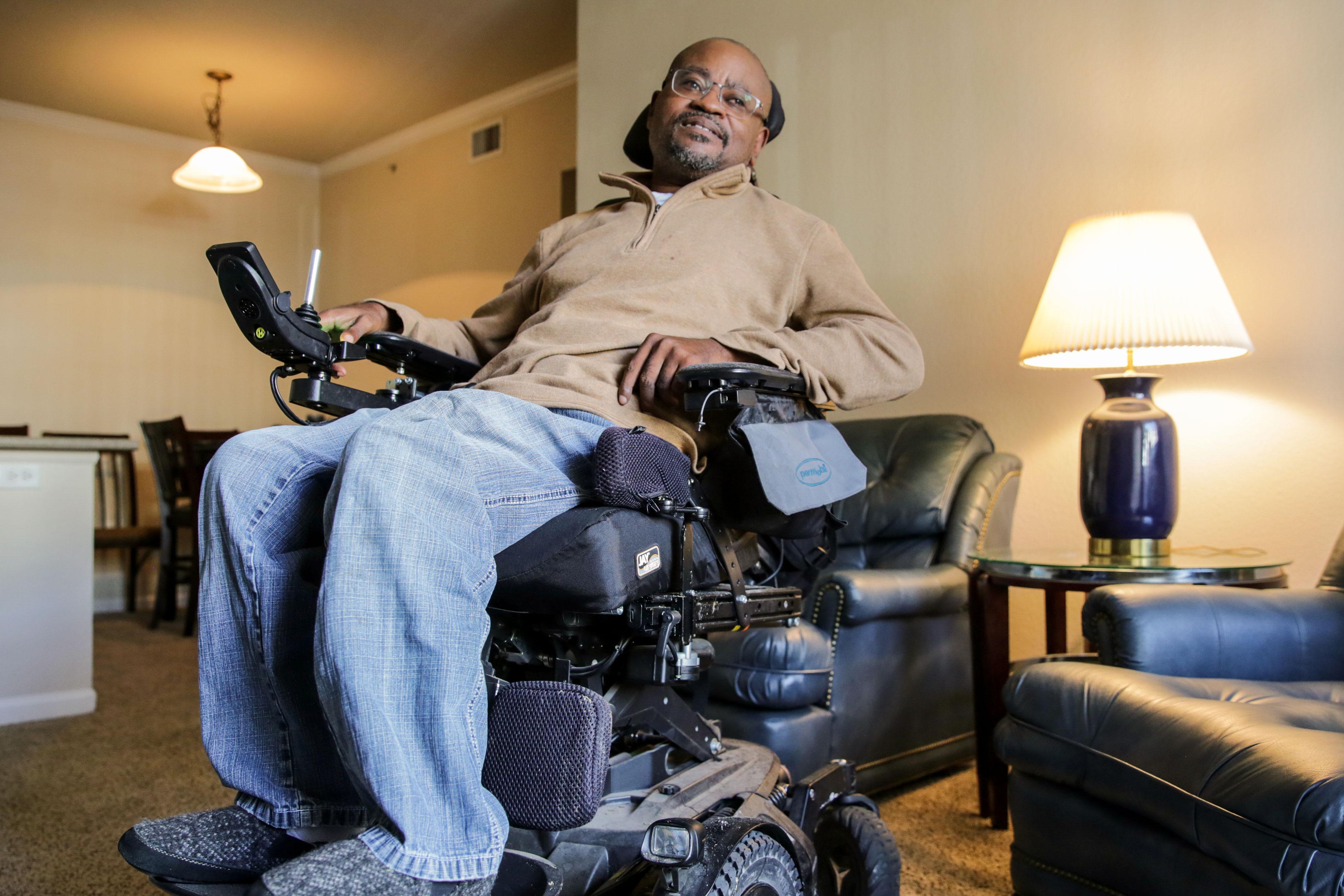

Rents are up in Denver, and evictions have followed suit. The trend has caught the attention of city officials. On Tuesday, Denver Mayor Michael Hancock launched a new set of programs aimed at keeping people in their homes.
“We want to ensure in this moment of progress and prosperity that we continue to bring people along and not push people out,” said Hancock during the announcement at the City and County Building.
Hancock announced a new guide to tenant rights in English and Spanish. The city will also launch an emergency rent and utility assistance program in November. The final piece is a new mediation service, meant to help landlords and renters reach legally binding agreements.
The new programs are a response to Denver’s first increase in eviction filings since the recession. Records from Denver County Court show a 6 percent increase in eviction filings between 2015 and 2016. Total filings reached 8,419 in 2016.

Since 2001, 80 percent of renters facing eviction in Denver have been forced to move out, according to a recent study by the Colorado Coalition for the Homeless and the Colorado Center on Law and Policy.
The mediation service proposal raised eyebrows among some on the City Council.
“That one felt a little premature,” said At-Large Councilwoman Robin Kneich. “Any approach that involves the eviction process that doesn't have an advocate or some way to vet the balance of power between tenants and landlords is a concern.”
Kneich is part of a group looking into another idea to support renters: hiring lawyers to defend them in eviction court.
Jarvis Shead knows first-hand how a lawyer can effect an eviction. Shead has cerebral palsy and gets around in a wheelchair. He uses medical marijuana to treat pain related to the condition.
The practice caused some problems at his last apartment in Denver. He said his landlord started posting noncompliant notices in June, saying he couldn't smoke on the property. Then, he learned an eviction had been filed.
“I had to be out right then. I didn't know if I had to go to a nursing home for 30 days while I found a place. That was an option,” he said. But he considered it an affront to his independence.
On a recommendation from his doctor, Shead hired April L. Jones, a lawyer with Colorado Affordable Legal Services. She struck a deal that gave him an extra month to look for a new apartment. That bought Shead enough time to find a new, accessible apartment in south Englewood.
“If I didn't have a lawyer on my side, I think I would have gotten railroaded and not be in such a great place as I am now,” he said.
Shead's the exception in Denver eviction cases, according to the study by the Colorado Coalition for the Homeless and the Colorado Center on Law and Policy. The analysis found only 2 percent of tenants had a lawyer, compared to 100 percent of landlords in the same cases. Renters with lawyers almost always managed to stay in their homes.
Jack Regenbogen, who helped author the study, wants Denver to hire attorney's to represent renters.
“If the city were to get involved, it wouldn't be distorting the fairness of the system but rather rectifying a grave unfairness limiting the system from acting as it should,” he said.
A number of East Coast cities and San Francisco already set aside resources for eviction defense. New York City has gone so far as to guarantee a lawyer for low-income renters facing eviction.
But Nancy Burke of the Apartment Association of Metro Denver, which represents landlords, said city-funded lawyers aren't the best use of taxpayer dollars. She helped craft Denver’s new approach to eviction.
Rather than address the issue at the end of the process — the eviction filing — she would prefer to see a proactive approach.
“Giving them education at the front end,” she said, and trying to “eliminate the possibility of them getting in this situation down the road.”
Burke said landlords don't want to evict tenants, and mediation offers a way to keep renters in their homes. But Regenbogen, the study author, said there's a problem with mediation: It's voluntary.
“And so if one party isn't interested in mediating, then they have every right to say ‘no thanks.’ And then mediation can't help,” he said.
Regenbogen is among those pushing Denver to support some level eviction legal defense. At the press conference on Tuesday, Mayor Hancock said he's open to the idea, but wants more time to examine the consequences.
Download: Residential Landlord Tenant Guide








